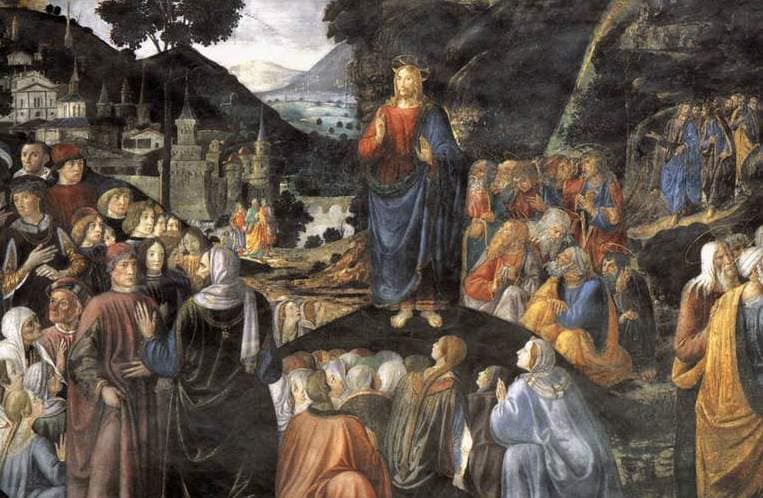 Gospel of 9 September 2020
Gospel of 9 September 2020
Wednesday of the Twenty-Third Sunday In Ordinary Time
Luke 6:20-26
Happy are you who are poor, who are hungry, who weep
Fixing his eyes on his disciples Jesus said:
‘How happy are you who are poor: yours is the kingdom of God.
Happy you who are hungry now: you shall be satisfied.
Happy you who weep now: you shall laugh.
Happy are you when people hate you, drive you out, abuse you, denounce your name as criminal, on account of the Son of Man. Rejoice when that day comes and dance for joy, for then your reward will be great in heaven. This was the way their ancestors treated the prophets.’
‘But alas for you who are rich: you are having your consolation now.
Alas for you who have your fill now: you shall go hungry.
Alas for you who laugh now: you shall mourn and weep.
‘Alas for you when the world speaks well of you! This was the way their ancestors treated the false prophets.’
Reflexion
Today we are treated to the less familiar set of beatitudes and matching curses in the Gospel of St Luke. Unlike our familiar eight-fold set in the Gospel of St Matthew, St Luke provides us with a set of four parallel sets of blessings and curses.
The key distinction here is between the “poor” and the “rich.” The other expressions function as illustrations. The poor are hungry, they weep, they are hated, excluded, reviled and defamed.
The good news that our Lord is preaching is the good news of the kingdom of God. The poor are “happy” or “blessed” now because God is taking them to heart and in Jesus, answering their cry. They can experience God’s reign here and now: “yours is the kingdom of God.” The fullness of life and of joy for which they desire, however, belongs to the future which they are being promised.
By contrast, the “rich” have their full now, laugh now, and are spoken well of now. Their consolation is limited to the present. They have forgotten what St Paul tells us at the end of the first reading: “the world as we know it is passing.” And because they have invested their happiness solely on these present but fleeting pleasures, in the future they will be hungry, mourn and weep.
The beatitudes are not meant to canonise poverty as a virtue in itself. Jesus is not praising poverty. He is calling His disciples to acknowledge their own powerlessness and utter dependence on God. For who are the poor but those who do not have the resources to meet their own needs. They are poor to the extent that they recognise that everything we are and everything we have, is a gift from God on whom we are totally dependent. The “poor”, therefore, are those who welcome the good news.
The rich, who are already satisfied with what they possess, or continue to desire for more of such treasures, have little appreciation for the greatest treasure of all - the kingdom of God. They are already self-sufficient and would be unwilling to recognise their own powerlessness, poverty and need for God. Their pride causes them to be self-reliant and closed themselves to the graces and blessings of God.
The poor are happy and blessed because they recognise their total dependence on God. In this world, they may have nothing which they can boast of, and yet they are rich beyond measure in the kingdom of heaven, because such riches are not part of this world which is passing, but they are part of a realm that will never pass away.
